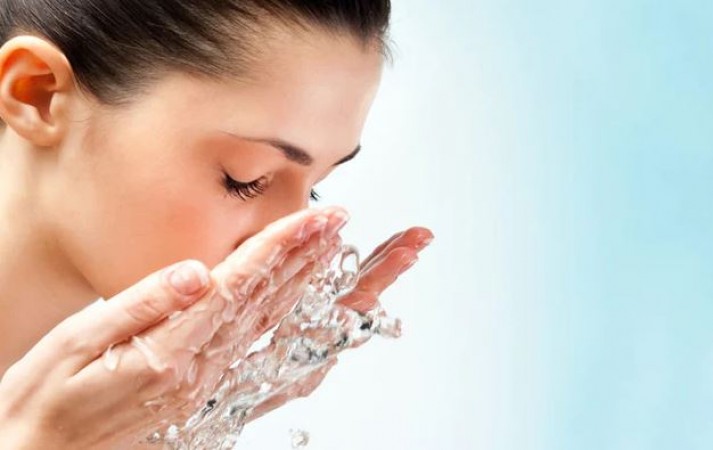
Keeping the face clean is essential for maintaining healthy skin. This involves the use of facial wash and cleansers, products designed to remove dirt, pollution, and harmful chemicals from the skin. While it's common knowledge that facial cleanliness is crucial, adhering to a proper routine can be challenging. Pollution and the presence of harmful chemicals in makeup can damage the skin, necessitating the use of facial wash. However, there is often confusion between facial wash and cleanser, leading to potential harm to the skin.
Understanding Facial Wash: A Deeper Dive
Definition and Purpose: Facial wash is a specialized skincare product designed to cleanse the face thoroughly. It goes beyond basic soap, which can strip the skin of its natural moisture due to high alkaline compound concentrations. Facial washes come in different formulations like foam, gel, and beads, catering to diverse skin needs.
When to Use: The frequency of using facial wash depends on your skin type. Those with regular skin can use it twice a day, while individuals with oily or combination skin may opt for three times daily. Those with dehydrated skin should limit usage to once a day. The first application, ideally during a morning shower, removes accumulated oils and impurities. The second application is part of the nighttime skincare routine.
Types of Facial Wash: Explore the various types of facial washes available, such as foaming facial wash, gel-based facial wash, and those with exfoliating beads. Understanding these distinctions helps in choosing the right product based on individual skin needs.
Understanding Facial Cleanser: Going Beyond the Surface
Definition and Purpose: Facial cleansers serve a unique purpose in skincare. While they also clean the face, their primary function is to remove impurities and dirt trapped in the skin's pores, allowing the skin to breathe. Cleansers are particularly beneficial for individuals who regularly apply makeup, as they help open up clogged pores.
When to Use: Using a cleanser once or twice a day is generally recommended. Ideally, it should be applied after using a facial wash to ensure thorough cleaning. This dual-step process helps in achieving effective and deep cleansing, maintaining clear and healthy skin.
Types of Facial Cleanser: Explore the various formulations of facial cleansers, including gel cleansers, cream cleansers, foam cleansers, clay-based cleansers, and micellar cleansers. Each type caters to specific skin needs, and choosing the right one enhances the overall skincare routine.
Creating an Effective Skincare Routine: Balancing Act
Combining Facial Wash and Cleanser: Integrating both facial wash and cleanser into a skincare routine ensures a balanced approach. While facial wash targets surface impurities, the cleanser goes deeper, unclogging pores and allowing the skin to breathe. Developing a routine that includes both products maximizes their benefits.
Frequency and Application: Tailoring the frequency of product use based on individual skin types is crucial. Regular skin types can benefit from twice-daily use of facial wash, while those with oily or combination skin may opt for three times a day. Dehydrated skin individuals should limit facial wash use to once a day. Cleanser application once or twice a day, preferably after using facial wash, completes the skincare routine.
In conclusion, understanding the nuances of facial wash and cleanser is fundamental for effective skincare. By delving into the specifics of each product, one can tailor their routine to meet the unique needs of their skin. Choosing the right type of facial wash and cleanser, incorporating them into a daily routine, and understanding when and how to use them ensures a comprehensive approach to skincare. This knowledge empowers individuals to protect their skin from environmental factors, maintain its health, and enhance their overall well-being.
Is Stress Bothering You? No Matter, Here's the Ultimate Solution – Follow These Steps
Most Indians are at risk of sleep apnea due to obesity, research revealed